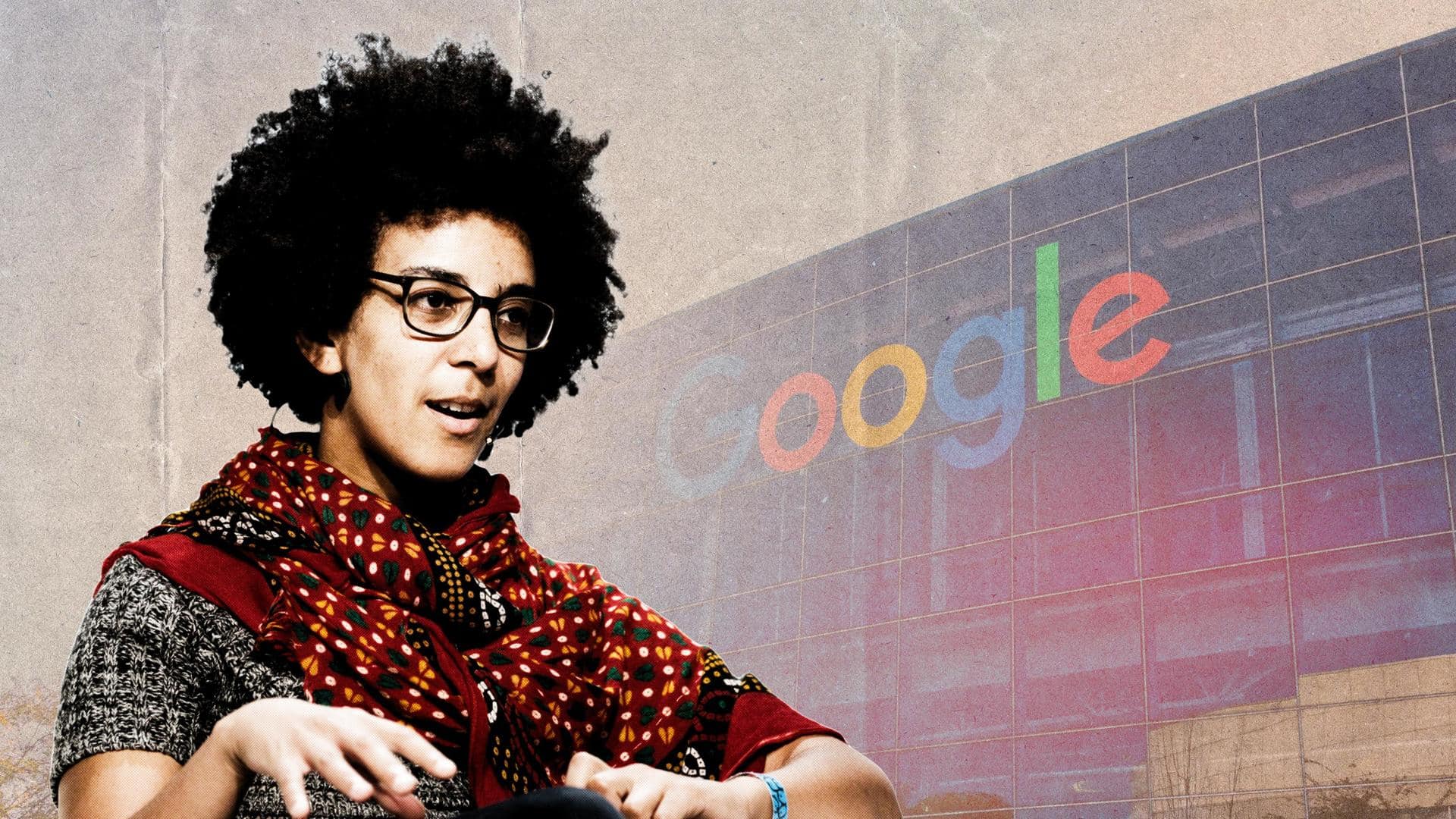
'AI represents hegemonic viewpoints': Google's ousted engineer drops several warnings
What's the story
Timnit Gebru, a former Google employee, has been warning the world about the dangers of artificial intelligence for some time. But until now, no one paid any heed to her warnings.
With AI tools now showing signs of supplanting humans, the public is taking notice of her.
In an interview with The Guardian, she spoke about the threats posed by AI and other concerns.
Biased
Gebru described the current AI frenzy as a 'gold rush'
Gebru described the current AI frenzy as a "gold rush." According to her, in a hurry, no one is considering the fact that many of them could be built on biases, imbalances, and inequalities.
She raised the same concerns in an academic paper she co-authored as the co-leader of Google's ethical AI team.
That paper, however, ended her time at the company.
The paper
Her paper says AI represents 'hegemonic viewpoints'
The paper was about generative AI, which has taken the world by storm. According to the paper, in its current form, AI represents "hegemonic viewpoints and encodes biases potentially damaging to marginalized populations."
In other words, companies are training AI models on a way of thinking that favors certain sections of society and particular regions of the world.
Consequence
Google asked her to withdraw the paper
When the paper was submitted for internal review, Google asked her to either withdraw the paper or redact her and her colleagues' names from it.
She was not ready to withdraw the paper. She agreed to remove names if Google expressed specific objections.
This resulted in her being fired in the middle of her vacation. Google cited "behavior inconsistent" with a manager's expectations.
Motivation
Companies won't regulate themselves unless there is external pressure
Gebru says her termination taught her how big tech is motivated by a drive to develop AI. "You don't want someone like me who's going to get in your way," she says.
According to her, the companies developing AI will not self-regulate "unless there is external pressure" to do so.
"We need regulation" and more than a "profit motive," she said.
Toxicity
Big tech's innovations embody inequalities: Gebru
Being terminated from Google wasn't the first time she felt marginalized. Now 40, Gebru has experienced prejudices in the US education system and Silicon Valley.
According to her, big tech's innovations embody the same inequalities present in their offices, labs, and social events.
During a Google event in around 2015, she said, she was harassed by a group of white men.
Gebru joined Google with 'trepidation'
In 2018, she joined Google to co-lead the AI ethics team. "I was full of trepidation," she said.
She termed the decision to join Google "a difficult decision" because she "had heard from several women about sexual harassment, and other kinds of harassment" at the company.
She said she was aware of a lot of "tolerance of harassment" and "toxic behavior" at Google.